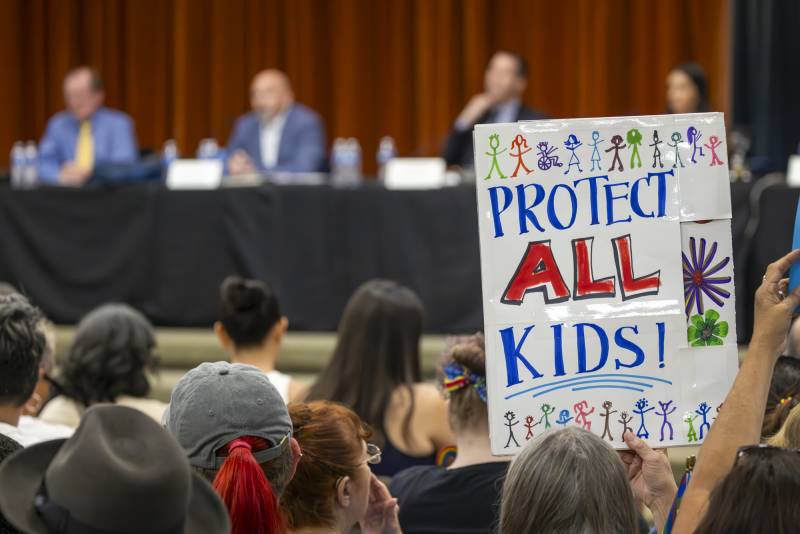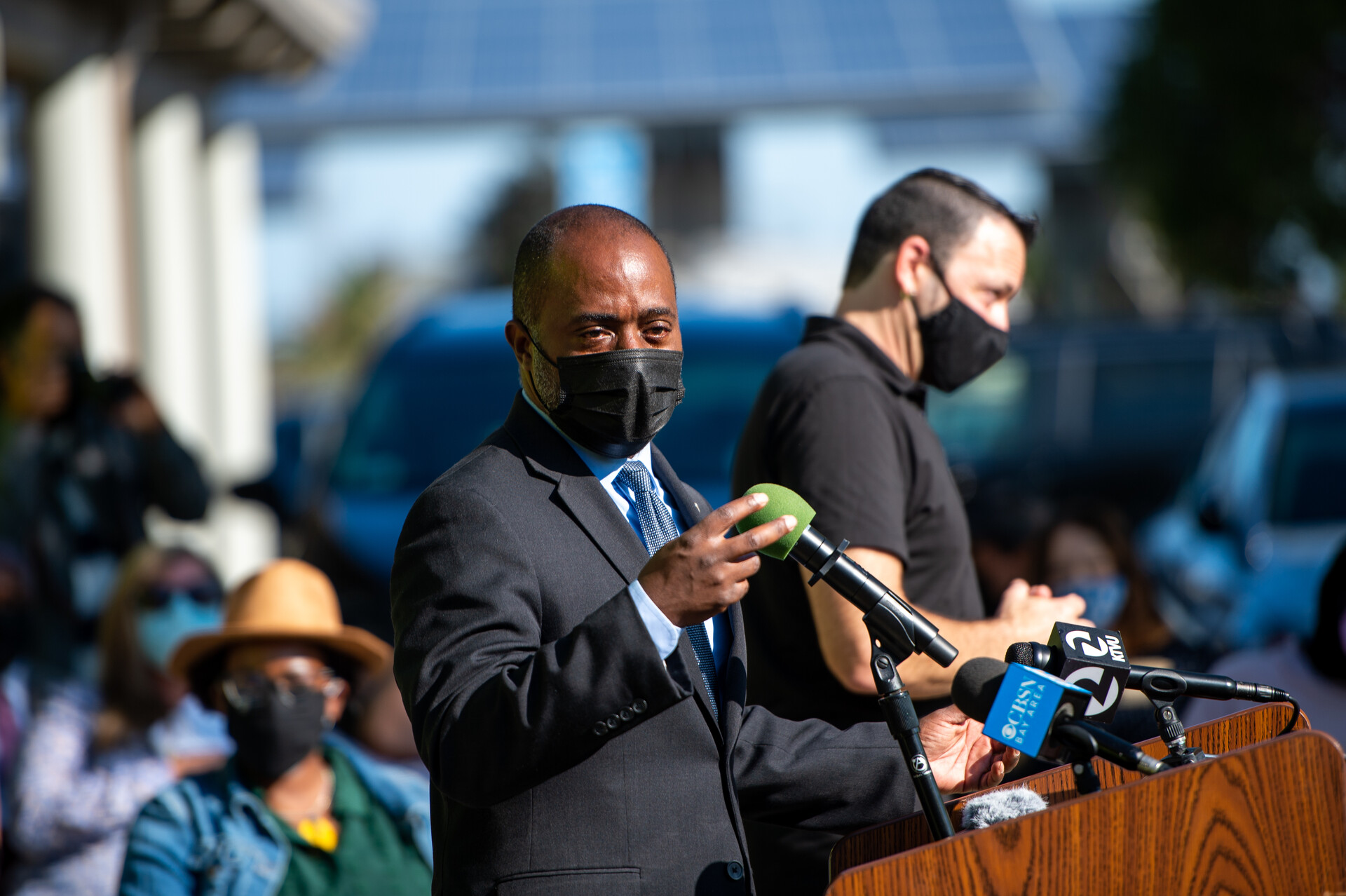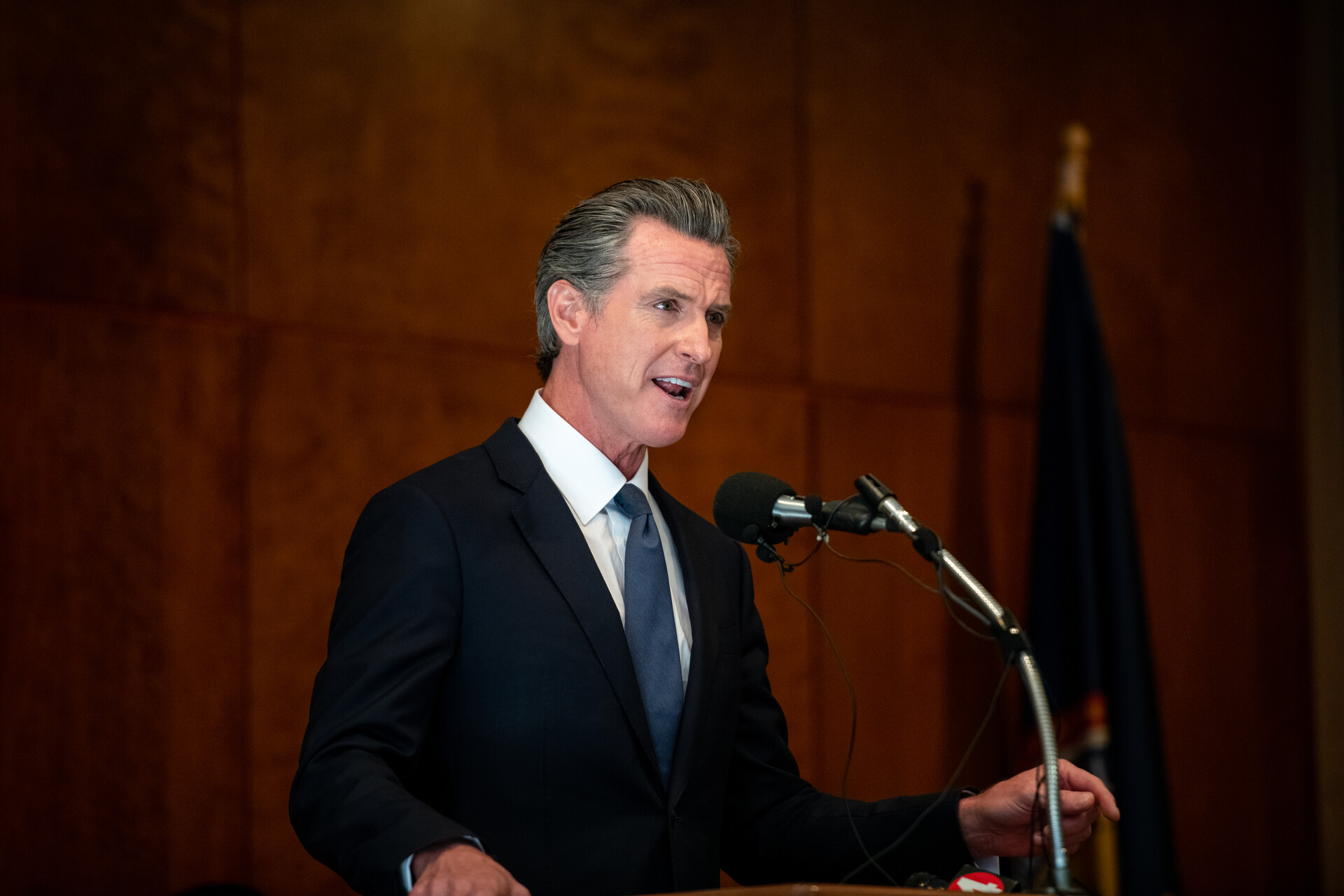“I really hope that folks will take that to heart and really get involved in local school districts,” Lee added. “Local control does matter, so it really matters who actually runs for school board, who’s involved in that process.”
In Chino, the board was swung toward a conservative majority in last year’s election through the organizing work of the California Republican Party and Real Impact, a political group run by local pastor Jack Hibbs.
Chino’s transgender reporting policy followed a ban on the display of certain flags, including the LGBTQ pride flag. The moves came after a series of tense meetings marked by personal attacks and heightened rhetoric. On both issues, the lone dissenting vote on the five-member board was cast by Donald Bridge, the former president of the local teachers union.
Opponents of the policies pushed by the board majority worry this year’s raucous debates could stymie efforts to reverse the political balance of the board in the future.
“When potential candidates look at what he’s going through, are they going to jump in? I wouldn’t,” said Brenda Walker, current president of the Associated Chino Teachers union. “So, yes, it’s going to be difficult to find candidates.”
Walker said her members have already noticed a chilling effect on both students and teachers compared to last school year.
For now, the concerns are moot: A superior court judge in San Bernardino County has put Chino’s transgender notification policy on hold after California Attorney General Rob Bonta filed a lawsuit arguing the policy violates the privacy rights of students.
But supporters of similar policies are hoping to expand their campaign beyond this initial series of local skirmishes.
Nearly two dozen conservative and religious groups, including Real Impact, have formed the Coalition for Parental Rights, to encourage more California school districts to adopt transgender reporting policies.
Some members of that group are also attempting to qualify three statewide initiatives for the November ballot: a transgender notification law, a ban on transgender students from competing on sports teams consistent with their gender identity, and a ban on puberty blockers and sexual reassignment surgery for minors.
Erin Friday, who heads the group Our Duty, and who is sponsoring the notification ballot measure, said she’s turning to California voters after a similar policy was blocked by the state Legislature.
“They’re ignoring [us] and saying that we’re right-wing bigots,” Friday said. “And that’s just not true. We’re parents who are safeguarding the bodily integrity of our children.”



